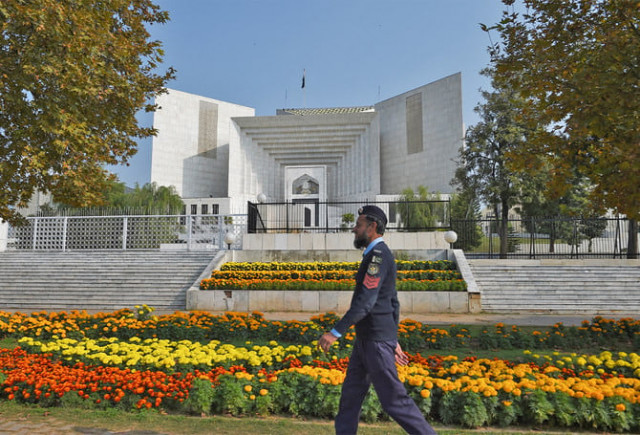No leniency in fraud cases, rules SC
Court says long term of service no reason for conversion of dismissal into compulsory retirement

The Supreme Court has ruled that in case of fraud and misappropriation of public money, the responsible official could not be let free or exonerated with a low degree of penalty.
The court also noted that long term of service was no reason for the conversion of punishment of dismissal into compulsory retirement.
"Merely for the reason that the petitioner served the department for 34 years is no justification to convert the punishment of dismissal from service into compulsory retirement,” read a four-page judgment authored by Justice Muhammad Ali Mazhar while hearing an appeal of a BPS-9 postmaster.
A three-judge bench of the apex court led by Justice Sardar Tariq Masood heard the matter.
The postmaster was served a show-cause notice on May 4, 2016, wherein allegations of misappropriation in the sum of around Rs1.74 million through bogus withdrawals after securing signatures of the account holders were levelled against him.
In the charge-sheet, the account numbers along with the names of their holders, whose amounts were misappropriated, were also mentioned. After the show-cause notice, a regular inquiry was conducted against the petitioner wherein he was found guilty and dismissed from service. The petitioner had challenged his dismissal order issued on June 30, 2016 under the Government Servants (Efficiency and Discipline) Rules, 1973.
“If such type of leniency is shown in the heinous matters of misappropriation of public money or public funds, then it will amount to giving a licence to all such civil servants to first join service, then serve at considerable length and commit crimes or misconduct at the verge of retirement without any fear of disciplinary proceedings, but with the confidence and assurance that the dismissal order from service will be converted into compulsory retirement by the competent authority by taking a lenient view or else the same request will be made to the court or tribunal to convert the punishment into compulsory retirement under the garb of long length of service which is a dangerous idea and cannot be fortified or encouraged as it would seriously spoil the entire corpus and fabric of the civil servants service structure,” the verdict read.
The judgment noted that the embezzlement of public money could not be treated as misconduct of a minor nature.
It added that it was also a matter of the people's confidence in public institutions that should not be depreciated or shaken.
The SC observed that there was no justification for claiming leniency merely for the reason that the petitioner had refunded the misappropriated amount.
"The doctrine of mens rea refers to the intent or awareness of wrongdoing behind the crime and the criminal intent which means the criminal act must be voluntary or purposeful,” the judgment stated.
"The literal translation of this word [mens rea] from Latin is ‘guilty mind’. It is apparent from the facts of the case that the petitioner misappropriated the public money purposely and consciously and also knowing that his act is an offence and intentionally and recklessly overlooked the considerable risk and jeopardy,” it added.
The order read that the record reflected that the petitioner was provided an ample opportunity of defence and due process of law was religiously followed. After finding him guilty on the basis of the inquiry report, the competent authority passed the dismissal order in accordance with the law.
“The petitioner also admitted his guilt but tried to justify his illegal action of misappropriation of public money by claiming that he required money for his daughter’s marriage,” the verdict read, adding that this was by no means a justification to commit the offence.
"The right of personal hearing was also provided to the petitioner, and throughout the proceedings, no mala fide intention, bias or malice was attributed to the inquiry proceedings,” the judgment stated.



















COMMENTS
Comments are moderated and generally will be posted if they are on-topic and not abusive.
For more information, please see our Comments FAQ